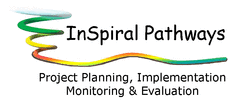1. Hesitate to encourage reflection;
2. Understand the project's ecosystem;
3. Manage in alignment with the project's ecosystem;
4. Bring in diverse perspectives;
5. Learn constantly; and
6. Embrace uncertainty
|
In the first of an eight part series of YouTube presentations on the 'humble project management toolkit' - a set of tools, approaches and philosophies which help us to effectively manage projects in the face of uncertainty, I introduce the toolkit, which contains many approaches to project planning, implementation, and monitoring and evaluation which can improve a project's efficiency and effectiveness. The toolkit's six 'compartments' are:
1. Hesitate to encourage reflection; 2. Understand the project's ecosystem; 3. Manage in alignment with the project's ecosystem; 4. Bring in diverse perspectives; 5. Learn constantly; and 6. Embrace uncertainty
0 Comments
In the second of an eight part series on the humble project management toolkit for better results in an uncertain world, I introduce the ‘Planning Fallacy’ – Why projects go over budget, over time, and fail to deliver according to specification… over and over again.
In the third of an eight part series on the humble project management toolkit for better results in an uncertain world, I describe our cognitive biases or “thinking errors” - one of two major causes of the ‘Planning Fallacy’ (why projects go over budget, over time, and fail to deliver according to specification… over and over again), and the project management implications of the fact that we often think more like Homer Simpson of the Simpsons than Mr Spock of Star Trek (the old version).
In the fourth of an eight part series on the humble project management toolkit for better results in an uncertain world, I describe the second of two major causes of the ‘Planning Fallacy’ (why projects go over budget, over time, and fail to deliver according to specification… over and over again): - Complexity. Complexity concepts are explained using Ricardo Wilson-Grau’s ‘Fish Soup Development Story’ – why one plus one does not always equal two, and the implications of this for project management.
|
John MauremootooJohn Mauremootoo is a consultant with over 20 years of experience in diverse aspects of international development. Archives
February 2024
Categories
All
|
